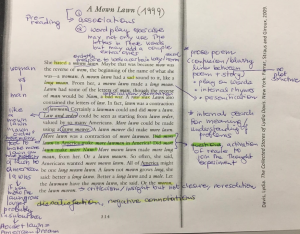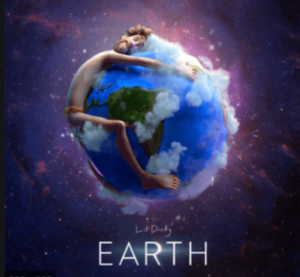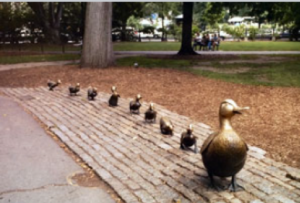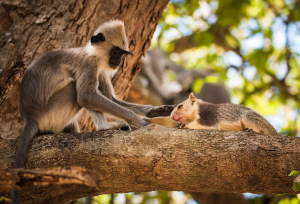Thursday, Jan. 23, 2020 (10:47 a.m.)
Lydia Davis (1947- ) is a lover of language and an American writer, probably in that order. She’s best known for her minimalist writing style and works of brevity (short stories, flash fiction, and narratives made up of only a couple of lines). One of my favorite prose poems is “A Mown Lawn.” It is literally one-of‑a kind. Well, almost. I think Davis wrote two political pieces, of which “A Mown Lawn” is one. If you aren’t familiar with it, please read it, otherwise this blog might not make sense (see image below).
As some of our loyal readers might recall, my colleague Maria Moss has written several blogs on how to teach poetry, including “Stopping by Woods on a Snowy Evening” by Robert Frost and Haikus. But I’m not like her. To be honest, I’m somewhat leery of the long faces students often make when they hear the word ‘poetry.’ Determined to give it a try, I prepared a lesson that would hopefully help my students appreciate Davis’s poem, engage with the topics, and think about language – the power of language, or should I say, the lack thereof? Anyway, here are my notes:
12:10 p.m.
Off to class. Let’s see how it goes.
Read more












